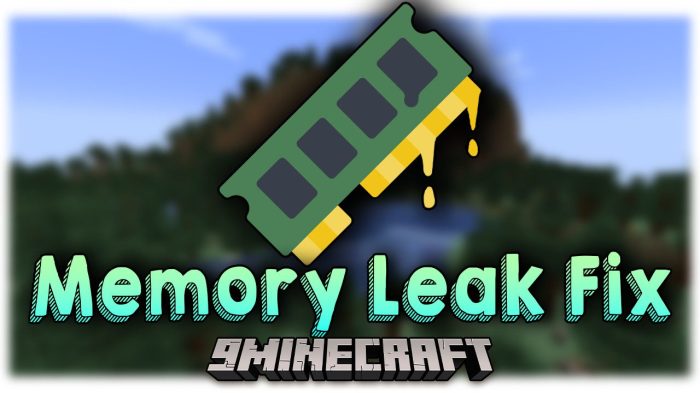Minecraft Memory Leak Fix: Diagnose and Resolve Memory Issues
Memory leaks can plague Minecraft gameplay, causing lag, crashes, and frustration. This comprehensive guide delves into the causes, identification, and troubleshooting techniques for memory leaks in Minecraft, empowering you to restore smooth and enjoyable gameplay.
Minecraft Memory Leak Fixes
Minecraft, the popular sandbox video game, can sometimes experience memory leaks, which can lead to performance issues and crashes. Understanding the causes of memory leaks and implementing effective troubleshooting techniques can help players resolve these problems and improve their gaming experience.
1. Memory Leak Causes: Minecraft Memory Leak Fix

Memory leaks in Minecraft can be caused by various factors, including:
Excessive entity spawning
Spawning a large number of entities (such as mobs, animals, or items) can lead to memory leaks if they are not properly despawned or removed from the game world.
Chunk loading issues
When chunks are loaded and unloaded frequently, it can cause memory leaks if the chunks are not properly unloaded and released from memory.
Mod conflicts
Incompatible or outdated mods can cause memory leaks by introducing bugs or errors into the game.
Resource leaks
Failure to properly release resources, such as textures, sounds, or data structures, can result in memory leaks.
Identifying Memory Leaks
To identify memory leaks in Minecraft, players can monitor the game’s memory usage using tools such as the Java VisualVM or the Windows Task Manager. If the memory usage continues to increase over time, even when the game is not actively being played, it may indicate a memory leak.
Troubleshooting Techniques
To troubleshoot memory leaks in Minecraft, players can:
Restart the game
Restarting the game can sometimes resolve temporary memory leaks caused by temporary glitches or resource leaks.
Update mods
Updating mods to their latest versions can fix compatibility issues and prevent memory leaks caused by outdated mods.
Reduce entity spawning
Limiting the number of entities that spawn in the game world can help reduce memory leaks caused by excessive entity spawning.
Unload unused chunks
Using commands or plugins to unload chunks that are not actively being used can help prevent memory leaks caused by chunk loading issues.
Profile the game
Using profiling tools, such as JProfiler or YourKit, can help identify the specific areas of the game code that are causing memory leaks.
Optimizing Memory Usage, Minecraft memory leak fix

To optimize memory usage in Minecraft, players can:
Allocate more RAM
Allocating more RAM to the game can improve performance and reduce memory leaks by providing the game with more memory to work with.
Reduce render distance
Reducing the render distance can help reduce memory usage by limiting the number of chunks that are loaded into memory.
Disable unnecessary mods
Disabling or removing mods that are not essential can help reduce memory usage and prevent memory leaks caused by mod conflicts.
Mod Management

To manage mods effectively and prevent memory leaks, players should:
Use a mod manager
Using a mod manager, such as Forge or Fabric, can help manage mods and ensure that they are compatible with each other and with the game version.
Install mods from trusted sources
Installing mods from reputable sources can help prevent memory leaks caused by malicious or poorly coded mods.
Update mods regularly
Keeping mods up to date can fix compatibility issues and prevent memory leaks caused by outdated mods.
Troubleshooting Tools

To troubleshoot memory leaks in Minecraft, players can use the following tools:
Java VisualVM
Java VisualVM is a profiling tool that can be used to monitor memory usage and identify memory leaks in Java applications, including Minecraft.
JProfiler
JProfiler is a commercial profiling tool that provides advanced features for identifying and analyzing memory leaks in Java applications.
YourKit
YourKit is another commercial profiling tool that provides comprehensive features for troubleshooting memory leaks and performance issues in Java applications.
Advanced Techniques
For advanced troubleshooting of persistent memory leaks, players can:
Analyze memory dumps
Creating a memory dump of the game process can provide detailed information about the memory usage and can help identify the source of memory leaks.
Modify game code
In some cases, it may be necessary to modify the game code or create custom patches to fix memory leaks that cannot be resolved through other methods.
Helpful Answers
What are the common causes of memory leaks in Minecraft?
Memory leaks can arise from various sources, including excessive mod usage, outdated drivers, and corrupted game files.
How can I identify memory leaks in Minecraft?
Monitoring memory usage through in-game tools or third-party software can help identify memory leaks. Additionally, observing symptoms such as persistent lag, crashes, and graphical glitches can indicate memory issues.
What are some effective troubleshooting techniques for memory leaks in Minecraft?
Isolating the source of the leak through profiling tools or debug logs, disabling or removing problematic mods, and optimizing memory usage through game settings can effectively troubleshoot memory leaks.
